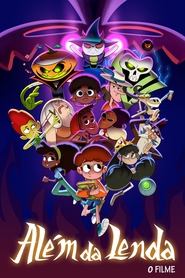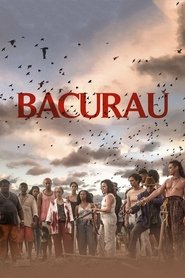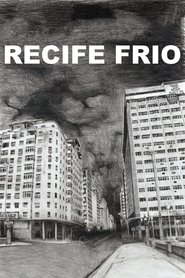detail profile jr black

Info Pribadi
Peran Yang Di Mainkan Jr. Black
 Once a year every Saci Day...
Once a year every Saci Day...Além da Lenda - O Filme 2022
Once a year, every Saci Day, October 31st, also known as Halloween, the sacred book that brings together all the legends of Brazil is revealed. But on that date, other international mystical beings intend to steal the book and national legends and legends need to do something to stop them.
 Bacurau a small town in the...
Bacurau a small town in the...Bacurau 2019
Bacurau, a small town in the Brazilian sertão, mourns the loss of its matriarch, Carmelita, who lived to be 94. Days later, its inhabitants notice that their community has vanished from most maps.
 The film tells the story of...
The film tells the story of...Salu and the Cavalo-Marinho 2014
The film tells the story of Mestre Salustiano, one of the most famous folk artists in Brazil. Son of the fiddle's player, João Salustiano, Salu dreams from an early age of joining a Cavalo-Marinho group, a traditional folk dance from the region where he lives.
 Dirceu 30 years old has origins that...
Dirceu 30 years old has origins that...Good Luck, Sweetheart 2012
Dirceu, 30 years old, has origins that go back to the aristocracy of Northeast Brazilian backlands. Settled in a kind of subjective amnesia, Dirceu tries to bury his family's past. He is a demolition man in Recife, an urban landscape undergoing an uncontrolled process of transformation. Maria shares the same country origins, but she uses the city for a different purpose. She is a carefree and joyful music student. If Dirceu aspires to a world that is stable and present, Maria lives in discord with the present. To her, nothing is as it should be. Maria's apparition unleashes in Dirceu an urge for being somebody else. On a route of escape through the desert of the backlands, a unique encounter is set to happen. Boa sorte, meu amor (Good luck, sweetheart) is an anti-romance of the impact between music and silence.
 In tropical Recife in northeastern Brazil...
In tropical Recife in northeastern Brazil...Cold Tropics 2009
In tropical Recife, in northeastern Brazil, temperatures drop to impossible lows and the inhabitants have to adapt. This 'mockumentary' gradually turns critical, looking at the climate, urban development and social interaction from every angle. Does a ray of sun pierce the clouds, after all?
 Paulete the star of a daring...
Paulete the star of a daring...